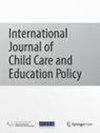Care dialogues: shifting family engagement from risk to rights in the USA
IF 1.8
Q2 EDUCATION & EDUCATIONAL RESEARCH
International Journal of Child Care and Education Policy
Pub Date : 2018-12-01
DOI:10.1186/s40723-018-0055-0
引用次数: 0
Abstract
Though family engagement has become a priority in early childhood education and care, there are problems in our understanding of the phenomenon. First, there is uncertainty about the target of outcomes—namely, should it be children or families? Second, the early childhood field lacks ethical guidance to address the complexity of this relationship. Finally, the field has not articulated the political potential of family engagement. This paper responds to the problem by developing “care dialogues” as a framework for ethical engagement. There are two dimensions. The ethical dimension builds upon dialogue’s potential for change, and the importance of recognizing particular relationships. The political dimension defines rights as the ability to act within those relationships. As a framework, care dialogues attend to the respective needs, rights, and beliefs of particular early childhood institutions and families while connecting to larger political concerns. The paper uses focus group data to build an illustrative case study demonstrating care dialogues’ potential to inform early childhood practice under non-ideal circumstances. This methodological choice is critical to allaying concerns about care as a utopian approach. Using the parameters of care dialogues, the case study addresses three themes—getting personal, agency and care, and narrative as advocacy. The case study concludes that: care dialogues facilitate intimate relations essential to family engagement; the concept of inappropriately adaptive preferences addresses the agency problem; and the political impact of care dialogues extend beyond the immediate exchange between families and institutions. The implications of care dialogues to policy are discussed.关爱对话:美国家庭参与从风险转向权利
尽管家庭参与已成为幼儿教育和保育的优先事项,但我们对这一现象的理解还存在问题。首先,结果的目标不确定--即,应该是儿童还是家庭?其次,幼儿教育领域缺乏伦理指导来处理这种复杂的关系。最后,该领域尚未阐明家庭参与的政治潜力。本文针对这一问题,提出了 "关爱对话 "作为伦理参与的框架。对话有两个维度。伦理维度建立在对话的变革潜力和承认特殊关系的重要性之上。政治层面将权利定义为在这些关系中采取行动的能力。作为一个框架,关爱对话关注特定幼儿教育机构和家庭各自的需求、权利和信仰,同时与更大的政治关切相联系。本文利用焦点小组数据建立了一个说明性案例研究,展示了关爱对话在非理想情况下为幼儿实践提供信息的潜力。这种方法论上的选择对于消除将关爱作为乌托邦式方法的担忧至关重要。利用关爱对话的参数,该案例研究探讨了三个主题--个人化、机构与关爱以及作为倡导的叙事。案例研究的结论是:照护对话促进了对家庭参与至关重要的亲密关系;不适当的适应性偏好概念解决了代理问题;照护对话的政治影响超出了家庭与机构之间的直接交流。讨论了关爱对话对政策的影响。
本文章由计算机程序翻译,如有差异,请以英文原文为准。
求助全文
约1分钟内获得全文
求助全文
来源期刊

International Journal of Child Care and Education Policy
EDUCATION & EDUCATIONAL RESEARCH-
CiteScore
3.10
自引率
0.00%
发文量
10
审稿时长
13 weeks
 求助内容:
求助内容: 应助结果提醒方式:
应助结果提醒方式:


